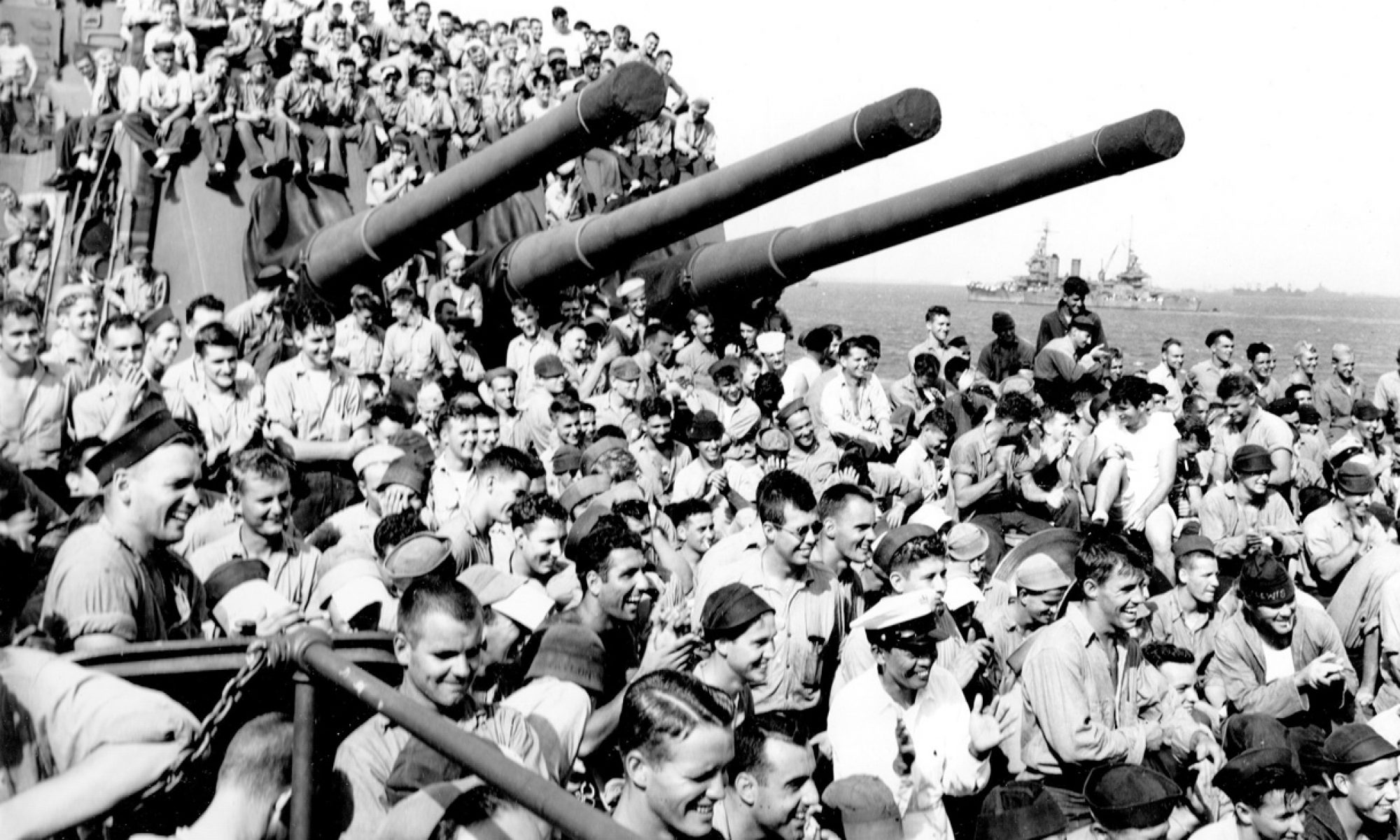1-17-15
“Tokyo Rose” is the name Allied troops and sailors applied to English speaking female broadcasters of anti-American “morale-buster” propaganda aimed at them during WWII. The most famous (or infamous) Tokyo Rose was Iva Toguri D’Aquino, a native Los Angelino, who by fate was visiting her parents in Japan when the War broke out. After the war, she was tried as a traitor and released from prison in 1956. While her story is fascinating, it is something perhaps for a future blog.
The Philippines Campaign that started on September 1, 1944, was still “in operation” by mid-January, 1945. Halsey sent Task Groups 38.1 (the Boston’s group) and 38.2 into the South China Sea on January 9, 1945. He believed the bulk of what was left of the Imperial Japanese Fleet was anchored somewhere in French Indo China – most likely in CamRahn Bay. On the night of January 9, the combined task groups slipped through the precarious and turbulent Bashi Straits (between Formosa and Luzon). CA-69 was the first heavy ship in line as they sailed into The South China Sea.
Excerpted from Baked Beans, Vol.2: We were going through a narrow channel (Bashi). We were the first ship of the formation in and the last one out. We heard Tokyo Rose that night say, ‘USS Boston, we know where you are and you are never going to come back.’ She said, ‘turn around now and go back.’ Bob Knight
I remember her (Tokyo Rose) well. She was very funny. Once when we were eating breakfast, she was broadcasting and giving us the news. All of a sudden, she says, ‘Oh, I have to tell you this. The fleet has lost one of its ships . . .’ All our ears perked up. ‘The Boston is gone.’ She was very entertaining! She gave news, played music, and when we were out in formation, she’d say this ship is sunk or that ship is sunk – and of course we could look out and they were right next to us. She was, of course, trying to demoralize us. Julian Goldstein
